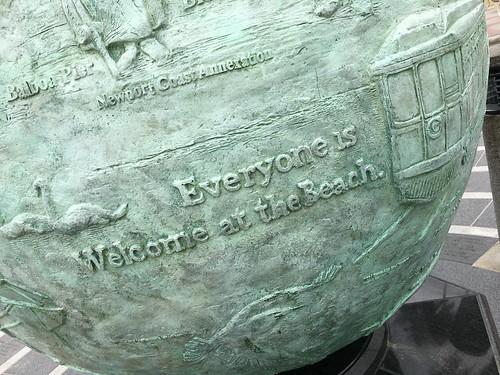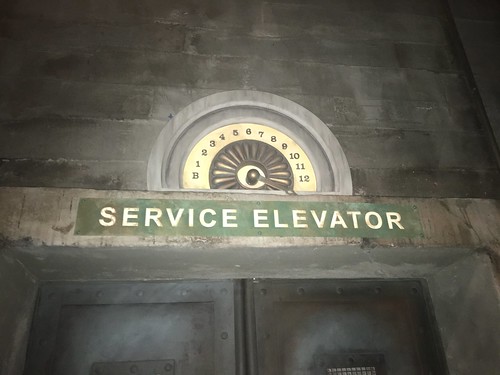I've had several opportunities lately to hear stories from people who have endured faith crises. It has been a common theme in my recent encounters, including speaking engagements I've attended, podcasts I've listened to, and books and articles I've read.
I can't help but think of the prophecy of the last days in Doctrine & Covenants 88:91, "And all things shall be in commotion; and surely men's hearts shall fail them; for fear shall come upon all people."
In a book I once read called
65 Signs of the Times, the author suggested that depression is part of men's hearts failing them. As you may recall,
I've recently managed some depression of my own, and I know from experience that depression can bring about a faith crisis. I, personally, dealt with a heavy amount of spiritual darkness for about 2-3 years (read more about the spiritual effects of depression
here).
Some people who suffer from depression or who face a spiritual crisis describe a feeling of God not being there. Some feel abandoned - like He left them, and others feel like it's their own fault - like they pushed Him away.
Remember the Del Parson painting with Christ at the door?
There is no knob, so all Christ can do is knock, and it is up to the person on the other side of the door to open it.
When I was in the thick of my spiritual funk, I felt like Christ (or Heavenly Father - I believe they are two distinct beings, but this description could go for my relationship with either one) was
right there - just on the other side of the door. He was so close, and yet, I was completely incapable of opening it. This was a heavy blow to me because it made me feel like my dysfunctional relationship with God and my Savior was all my fault because it was
my job to open the door. He was
right there, but I couldn't do what I needed to do to connect (learn about one way we can shift our thoughts about our relationship with Christ
here).
During that time, I lost my ability to pray. I
thought about prayer a lot, and I pondered on the things I needed to discuss with God. The pleas were in my heart, but I couldn't kneel down and send them heavenward. My mind was so foggy and muddled that prayer felt impossible.
Additionally, I rarely felt the Spirit. I struggled to prepare my Sunday school lessons because I would study the topics, and I would feel nothing. I could recall times in my life where I felt such a strong conviction of truth, but I didn't have that ability to
feel anymore, at least not anything positive. It was all behind the door with no knobs while I was left on the other side with a slew of negative thoughts and emotions.
In September, I went to an event called Time Out for Women with some of my in-laws. Michael McLean, a popular LDS songwriter spoke at the event about a faith crisis of his own. For nine years he had been in spiritual darkness. One thing he decided to do was to "Show up and shut up." He kept going to church, and after a few incidents with expressing some negative emotions, he decided to stay quiet for a while. Eventually he came across the book,
Mother Teresa: Come Be My Light. The book is a collection of letters that Mother Teresa wrote in which she expressed her own feelings of spiritual darkness.
For Mother Teresa, as soon as she began doing the work that she felt Christ called her to do, she stopped feeling Him near. She longed, more than anything, to have a relationship with God, but for over fifty years, she struggled to feel Him near (read a little more about Mother Teresa's story
here).
Isn't it interesting how these things happen during crucial points of our lives? My own crisis began while I was serving as primary president. As I threw myself into service, I began to feel something leaving me. Soon after I was called to be the primary president, I took a leap of faith and went back to school while simultaneously taking another leap of faith and bringing my fourth child into the world. I didn't feel prepared to do either of those things, but when the Spirit pointed me in those directions, I decided to trust in the Lord. I believed with all my heart that I was doing what God wanted me to do, and yet, the door was closing between us. I was at a pivotal point in my life, and I found myself gasping for spiritual air.
Now, I wish I could say "the problem was THIS and the solution was THIS," but I don't have a foolproof formula for getting through depression or a faith crisis. Michael McLean didn't offer a foolproof formula, either. It's, indeed, different for everyone, but I've been blessed to have great results from medication. It has taken time, but I am ever improving, and I rejoice that I can feel the Spirit again. I am still working on praying, but it's getting better.
I felt extremely weak turning to medication. I truly believed that my crisis was my own doing, and that I just wasn't doing enough to get out of it, but now that I can see the difference it has made, I am not ashamed that I took the medication route. It helped get me to a place where I could
act, and now I'm in a better emotional and mental place, and I am finally getting my spiritual groove back. I feel things again, and sometimes I feel them so passionately that I want to shout from the rooftops (I settle for texting my friends).
You know who else takes meds? Michael McLean.
In fact, he wrote a song about it. It's called "Pills," and you can read about it
here.
I have a confession. For the last several years, I have not liked Michael McLean at all. I heard him speak a few years ago, and he came off as very pompous and arrogant. Little did I know, he was in the middle of his faith crisis. That just goes to show that we don't always know a person's heart. Now that I know Michael's story, I feel great compassion for him. Sometimes it's the person we least expect who is having the crisis.
One of the best things I've heard about depression came from a podcast from the Mormon Channel about mental and emotional health. In the discussion, a therapist explained that just because you have depression doesn't mean you are emotionally or mentally unhealthy. He said that some of the people he has helped over the years have had very severe depression, but they have been some of the most emotionally and mentally health people he has ever met. Recognizing you need help is a healthy skill.
I wish I could say I recognized it in myself right away, but I didn't. It wasn't until I heard someone I look up to describe her own struggle that I finally had the courage to question whether my spiritual crisis might be more than just my own shortcomings. That is why I've decided not to be quiet about it. Someone was brave enough to tell me that she needed help, and I admired her for it, so now it's my turn.
Another reason I'm writing this is because I want to share with you how much I have learned from this experience. I won't go into all of the specifics, I will just say that being on the other side of it has opened my eyes to so many incredible truths. I have learned by contrast - spiritual darkness vs spiritual light. This contrast has helped me recognize things in myself that I took for granted before. I am more aware of my strengths and abilities after losing them for a while. There was a time when I couldn't even go to the grocery store. Now, I am more capable, and I look at myself and think, "You bought milk today! You are
amazing!" I find many more things to thank God for than I ever did before. I have not made a perfect return to my faith, I admit, but I am well on my way, and I know that I will continue to make progress. I'm very happy about that!
To those who may be facing a similar crisis, my heart goes out to you. I'm just beginning my journey on the other side of it, and I wish I could hold your hand and pull you over here. Please know that you are not alone. You are not weak. You are loved beyond measure, and there are good things waiting for you.






















